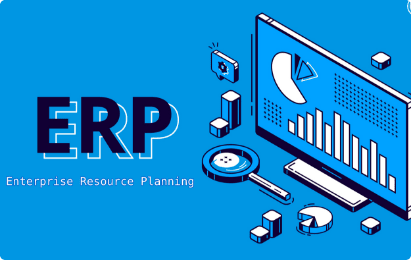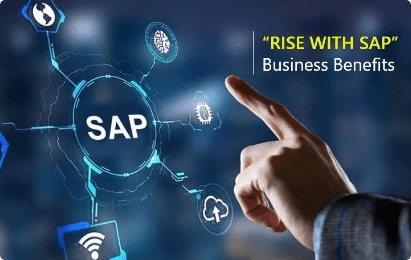
Blog
Orane’s blog posts keeping you up to speed with what’s hot in the world of business.
How FMCG Companies can Digitally Transform their Distributor Operations

Introduction:
Over a span of two decades, the FMCG sector has witnessed a prolific shift in the way consumers buy their offerings. In the early ‘90s, people bought what their local newspaper or radios advertised giving a boom to the advertising sector which was the primary voice of the FMCG industry. Shopping channels were predominantly local stores and supermarkets that were either stand-alone or within cozy spots inside malls. Fast forward to the 21st Century, the eCommerce wave started disrupting nearly every sector as consumers started to make more informed buying decisions after comparing prices, quality, and ease of buying.
In fact, studies show that by 2022, nearly 12% of all FMCG sales globally will be through eCommerce channels. Compared to other sectors, this may not be a huge figure, but the growth rate the sector achieved in the digital era has been phenomenal.
The key challenge that FMCG companies face in staying competitive in a highly digital savvy market is their distributor operations. The success of any FMCG product depends on the speed in which they reach customers either at stores nearby or through online shipments courtesy of eCommerce websites. For both these channels, distributor networks must align with the agility and speed that the rest of FMCG operations have achieved through digital transformation over the years.
This brings us to yet another intriguing question. What should FMCG companies do to make their distributor operations reach the levels of digital supremacy needed to remain competitive in today’s fast-paced world? Here are a few tips
Going Hyperlocal Through Digital
The COVID-19 pandemic disrupted the distribution channels of almost every major FMCG player due to unprecedented lockdowns and restrictions in mobility. Closure of international as well as local borders within countries resulted in unforeseen delays and uncertainty in order fulfillment for both online and offline retail channels through which FMCG goods were usually sold. FMCG companies can set up regional or local hubs for distribution or tie-up with regional partners to establish last mile connectivity for their products to reach consumers. The entire network can be connected, scaled, and managed efficiently through digital platforms to ensure that there is traceability, accountability, and visibility into localized distribution operations, which will be handled either directly by the brand or through partners in localized markets.
Improved Agility Through Real-Time Insights
By deploying digital solutions that capture the entire distribution journey, FMCG companies can have a more comprehensive picture of the timeline it takes for a product to move from the factory to the consumer’s hands. Distributors often cause delays due to their inefficiencies in logistics, warehousing, staff utilization, regional tax, and compliance complexities, etc. By enabling digital connectivity through all facets of the distribution system, right from the time a product shipment reaches the distributor location till it goes out to omnichannel selling points (stores or online), FMCG companies can weed out inefficiencies. For consumers, this would mean more accurate tracking and awareness of when their favorite products become available either through home delivery or at their nearby stores through alerts sent as promotions by the brands directly. For distributors, digital propels them to a real-time entity that supports multiple sales channels efficiently, including self-service online stores.
Inventory Optimization
FMCG companies often flood regional distribution centers or partner stores with inventory in anticipation of demand, but this increases the chance of inventory being wasted, especially perishable goods or those with little shelf life. With digital transformation, it is possible to build a responsive distribution network that can plan and deliver goods on demand in the fastest route to market. For this to be effective, there is a need for real-time visibility into processes and logistical operations within the distribution network. This will allow FMCG companies to derive maximum ROI from their existing channel partners and distributor networks while ensuring that the right inventory is in close proximity to demanding areas.
Empower Value-Added Services
Distributor operations need not just be restricted to stock keeping and supply to channels for FMCG goods. Folks engaged in distribution operations can be trained and empowered with technology to deliver value-added services like customer support, product demonstrations, customizations, customer training, quality inspection, market feedback aggregation, and much more. With digitization, it is easy to facilitate data aggregation from all value-added services. This data can be used to drive more efficient sales strategies that will improve brand loyalty for FMCG companies.
As the world gets back to normalcy from the COVID-19 pandemic with vaccinations, there will be several traits that people are likely to follow even post the pandemic era. One of them would be the increased dependence on digital channels for everything from shopping groceries to entertainment.
FMCG companies need massive investments to digitize their distributor operations to help bring in real-time visibility on their order fulfillment journey. By building a digitally connected network supplemented by emerging technologies like AI, Internet of Things, and big data analytics, FMCG companies can truly build lasting customer relationships through omnichannel sales fulfillment.
To automate your demand and production, try DealerPro.
Subscribe to our communication
You agree to receive newsletters, marketing communication and latest developments from us.

6 Tips to Boost Your Business Performance
- August 19, 2022

How ERP Implementation is Essential for Businesses? – Top 5 Reasons
- August 19, 2022

Take your Data into next level
- August 19, 2022

Rise with SAP: Business Benefits
- August 19, 2022

SAP Masterdata Management
- August 19, 2022

